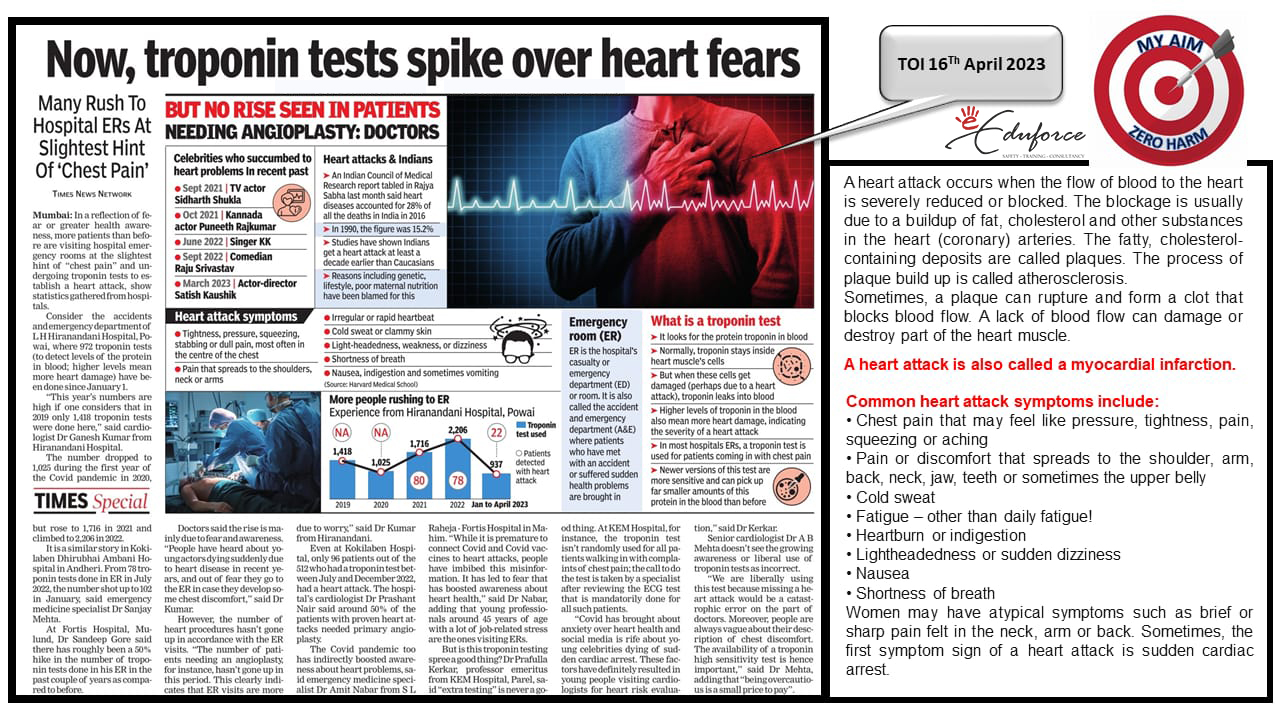In recent times, there has been a noticeable increase in the number of people rushing to hospital emergency rooms at the slightest hint of chest pain. This sudden surge is often driven by the fear of a heart attack, a condition medically known as myocardial infarction. While this heightened awareness of heart health is positive, it’s crucial to understand the significance of a troponin test and the symptoms associated with a heart attack.
Troponin Test: A Vital Diagnostic Tool
A troponin test is a crucial diagnostic tool used to detect damage to the heart muscle. Troponins are proteins released into the bloodstream when there is injury or stress to the heart, such as during a heart attack. By measuring the levels of troponins in the blood, doctors can accurately assess whether a heart attack has occurred and evaluate its severity.
Heart Attack: More than Just Chest Pain
Chest pain is often considered one of the hallmark symptoms of a heart attack. However, it’s important to recognize that heart attack symptoms can vary widely and might not always manifest as severe chest pain. Some common heart attack symptoms include:
1. Chest Discomfort: While intense chest pain is common, some individuals may experience discomfort, pressure, or squeezing sensations in the chest that come and go.
2. Pain in Other Areas: Pain or discomfort can extend beyond the chest to the arms, neck, jaw, back, or stomach.
3. Shortness of Breath: Feeling breathless, even with minimal physical activity, could indicate a heart attack.
4. Cold Sweats: Profuse sweating, often accompanied by feelings of anxiety, may be a symptom.
5. Nausea and Vomiting: Some individuals may feel nauseous or vomit during a heart attack.
6. Lightheadedness: Feeling dizzy or lightheaded, potentially leading to fainting, can be a sign.
Interpreting the Recent Trends
The recent spike in people seeking medical attention for chest pain could be attributed to heightened awareness about heart health, possibly due to increased education and awareness campaigns. While it’s positive that people are taking their heart health seriously, it’s important to strike a balance between being cautious and understanding that not all chest discomfort points to a heart attack.
Angioplasty and Heart Attack Treatment
Interestingly, despite the rise in troponin test spikes and emergency room visits, doctors are not seeing a corresponding increase in patients needing angioplasty—a procedure used to open blocked or narrowed arteries. This could indicate that while there’s increased awareness, not all cases necessarily result in severe heart conditions requiring immediate intervention.
Conclusion
It’s commendable that individuals are now more vigilant about their heart health and are seeking medical attention promptly. However, it’s equally vital to understand that chest discomfort can stem from various causes other than a heart attack. Consulting a healthcare professional for proper assessment and diagnosis remains essential. Remember, while a troponin test is a valuable tool, a comprehensive evaluation by medical experts is the best way to ensure accurate diagnosis and appropriate treatment.

